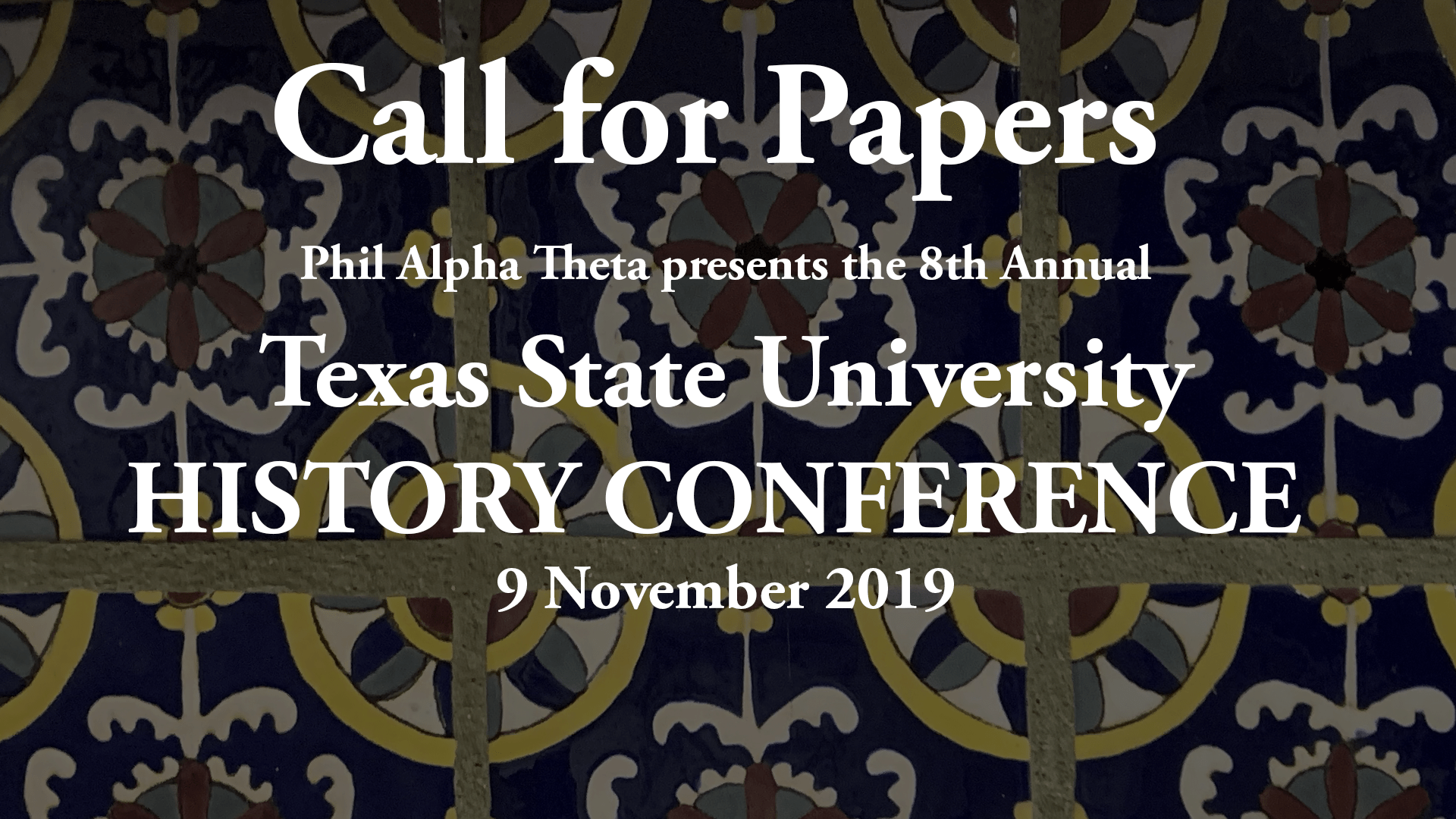
The History Department and Phi Alpha Theta at Texas State University are pleased to announce their 8th Annual History Conference. The conference will be held on Saturday, November 9, 2019 at Texas State University.
This conference will hold a poster session in addition to panels. All presenters should submit an abstract of 250-500 words and CV to Jennifer Blackwell (phialphatheta@txstate.edu) no later than October 11, 2019.
Graduate AND undergraduate student submissions are welcome!
Presenters will be notified of acceptance by October 18, 2019 and have until November 1, 2019 to submit full papers. Papers should be 8-10 pages in length. Each presentation is limited to 15 minutes.
The $25 registration fee is payable via cash or check in the History Department office at Taylor Murphy 202 or by cash, check, or card on the day of the event. This fee includes breakfast and lunch. Please contact Jennifer Blackwell with any questions or concerns.
